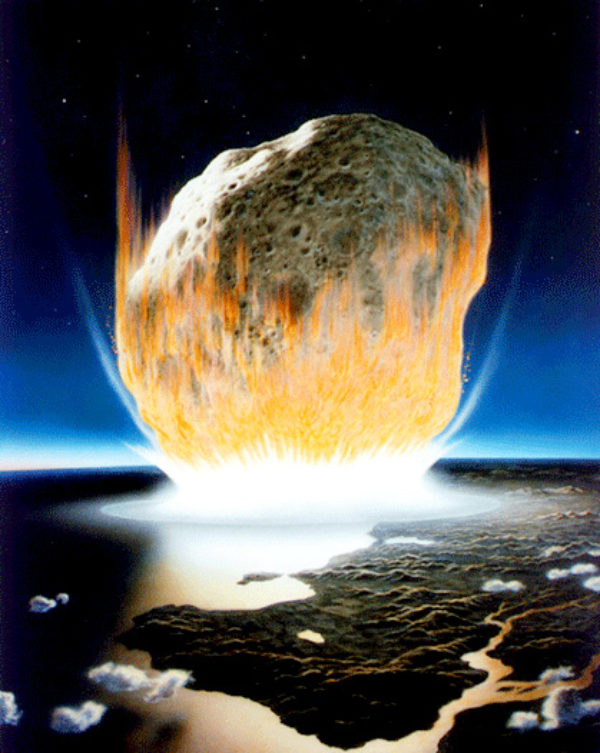The Asteroid Impact That Doomed the Dinosaurs Also Spawned a Mega-Tsunami

The dinosaur-killing asteroid that hit the Earth around 66 million years ago probably generated a huge tsunami, according to new research.
A team of scientists dug into Chicxulub crater, which is the scar left over from the impact that is located on the Yucatan Peninsula in Mexico. There, they retrieved rocks from between 1,640 feet and 4,260 feet (500 meters and 1,300 meters) beneath the surface.
"This research helps answer the tantalizing question of exactly what happened in the immediate aftermath of one of the most significant events in Earth's history," co-author Kliti Grice, a geochemist at Curtin University in Australia, said in a statement. This impact was not only deadly to the dinosaurs, Grice noted, but it also killed off about three-quarters of all animal and plant species around the world.
Related: Chicxulub Asteroid Impact: The Dino-Killer That Scientists Laughed At
The researchers analyzed samples of the peak ring of the crater core, searching for molecules such as polycyclic aromatic hydrocarbons (PAH), which are organic compounds containing carbon and hydrogen. ("Aromatic" does not refer to the molecules' smell, but rather their ring-like shape.) In the samples, the scientists looked for a PAH called perylene, which comes from pigment made by wood-degrading fungi.
The compound's presence suggests that a tsunami several hundred feet (or meters) high "flooded the crater within days of the asteroid impact," Grice said. "The abundance of perylene within the crater is the result of it being transported there by the soil and land plant debris carried by the tsunami."
The aftermath of the impact was catastrophic: first, a quick inferno, then a long period of cooling. Most of the species alive at the time couldn't tolerate the dramatic temperature shifts and perished. "We fried them and then we froze them," lead author Sean Gulick, a geoscientist at the University of Texas as Austin, said in a statement. "Not all the dinosaurs died that day, but many dinosaurs did."
Breaking space news, the latest updates on rocket launches, skywatching events and more!
The research is described in a paper published on Monday (Sept. 9) in the journal Proceedings of the National Academy of Sciences.
- If an Asteroid Hits the Ocean, Does It Make a Tsunami? (Probably Not)
- Are Ocean Asteroid Impacts Really a Serious Threat?
- Mega Tsunamis Rocked Mars Oceans Billions of Years Ago
Follow Elizabeth Howell on Twitter @howellspace. Follow us on Twitter @Spacedotcom and on Facebook.

Elizabeth Howell (she/her), Ph.D., was a staff writer in the spaceflight channel between 2022 and 2024 specializing in Canadian space news. She was contributing writer for Space.com for 10 years from 2012 to 2024. Elizabeth's reporting includes multiple exclusives with the White House, leading world coverage about a lost-and-found space tomato on the International Space Station, witnessing five human spaceflight launches on two continents, flying parabolic, working inside a spacesuit, and participating in a simulated Mars mission. Her latest book, "Why Am I Taller?" (ECW Press, 2022) is co-written with astronaut Dave Williams.
